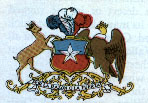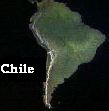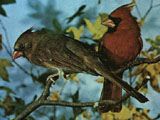FIELD SCHOOL TO CHILE
| Time: |
Spring 1999 |
| Faculty: |
Jorge Gilbert |
| Enrolment: |
15 students |
| Credits: |
16 (equivalencies depend on student projects |
-
DESCRIPTION
 This
Field School to Chile has three general objectives. First it provides
participants with an interdisciplinary curriculum which will allow them
to study, research and experience firsthand a wide range of issues and
concerns affecting Chile and South America at the end of the 20th century.
Secondly, the Field School to Chile provides practical opportunities
for intensive language study. Students will attend regular classes geared
to their skill level with the goal of developing or deepening their knowledge
of Spanish. Third, the Field School to Chile immerses participants
in the cultural, socio-political and economic reality of a country struggling
to overcome its condition of underdevelopment. Students will have the opportunity
to participate in workshops, conferences, and discussions with political
and community leaders and grassroots organizations and to study the social,
artistic, folkloric and intellectual life of the country.
This
Field School to Chile has three general objectives. First it provides
participants with an interdisciplinary curriculum which will allow them
to study, research and experience firsthand a wide range of issues and
concerns affecting Chile and South America at the end of the 20th century.
Secondly, the Field School to Chile provides practical opportunities
for intensive language study. Students will attend regular classes geared
to their skill level with the goal of developing or deepening their knowledge
of Spanish. Third, the Field School to Chile immerses participants
in the cultural, socio-political and economic reality of a country struggling
to overcome its condition of underdevelopment. Students will have the opportunity
to participate in workshops, conferences, and discussions with political
and community leaders and grassroots organizations and to study the social,
artistic, folkloric and intellectual life of the country.
In Spring 1999 the Field School to Chile
will focus on the study of different aspects of Chilean life. The subjects
of the studies will include poverty, popular culture, the status of women,
artistic expression, environmental concerns of the people, and the particular
struggles and issues facing different sectors of the population under Chile's
current neoliberal model of economic development. The studies will involve
research, observation, and close collaboration with communities and groups.
Students interested in the field school with
a background in video production, Latin American studies, political economy,
communication, art, media, folklore, environmental or cultural studies
can enroll in this program for Spring. However, you need to apply to this
Field School to Chile no later than the second week of the winter quarter.
BACKGROUND OF CHILE
 One
of the oldest democracies in Latin America that was abruptly interrupted
by a military coup d'etat between 1973 and 1990, Chile
is rapidly trying to insert itself into a new international world order,
under the leadership of an elected civilian government. The economy of
the country is proudly exhibited by international organizations as one
the most effective and successful in the Third World. Chilean exports have
reached all markets around the world and investments in Chile's economy
have grown significantly. Programs and projects at all levels are being
developed by governmental, private, international and Non Governmental
Organizations. For these reasons the country is changing very fast not
only economically but, also, culturally and politically.
One
of the oldest democracies in Latin America that was abruptly interrupted
by a military coup d'etat between 1973 and 1990, Chile
is rapidly trying to insert itself into a new international world order,
under the leadership of an elected civilian government. The economy of
the country is proudly exhibited by international organizations as one
the most effective and successful in the Third World. Chilean exports have
reached all markets around the world and investments in Chile's economy
have grown significantly. Programs and projects at all levels are being
developed by governmental, private, international and Non Governmental
Organizations. For these reasons the country is changing very fast not
only economically but, also, culturally and politically.
-
Despite the fact that a large segment of Chile's
population is of European extraction, the indigenous traditions from the
Americas are strong and visible in several parts of the country. The desert
north, once part of the Inca Empire, preserves important archeological
remains, while Aymara Indians still farm the valleys and terraces of the
Andes. South of the Chilean heartland, the Mapuche Indians inhabit communities
whose symbolic importance in Chilean life greatly exceeds their political
and economic significance. Until the end of the 19th century, the Mapuche
maintained an effective and heroic resistance to the southward advance
of Chilean rule and its expansionist goals. Cities like Temuco and Osorno
are the home of most of this native population. Chile's tremendous geographic
diversity, and surprising cultural variety, have made it an important destination
in its own right.
LOGISTICS
 The
first week of the quarter will be used to introduce the students to the
culture, politics and geography of the country. Working groups will be
organized to join different research projects according to the particular
interests of the participants of this field school. Once in Chile, the
group will visit governmental, non-governmental, private and church projects
for development in urban and rural areas of the country. Trips to the Andes,
rural, urban and mining sectors, the National Congress in the port of Valparaíso,
and meetings with governmental authorities, political leaders and grassroots
organizations will be held. Students will have the opportunity to interact
with a wide range of the Chilean population to learn and evaluate the effects
of the new economic and cultural changes. Classes, conferences and workshops
about this and other topics will be available at the University of Chile
and other educational and research institutions.
The
first week of the quarter will be used to introduce the students to the
culture, politics and geography of the country. Working groups will be
organized to join different research projects according to the particular
interests of the participants of this field school. Once in Chile, the
group will visit governmental, non-governmental, private and church projects
for development in urban and rural areas of the country. Trips to the Andes,
rural, urban and mining sectors, the National Congress in the port of Valparaíso,
and meetings with governmental authorities, political leaders and grassroots
organizations will be held. Students will have the opportunity to interact
with a wide range of the Chilean population to learn and evaluate the effects
of the new economic and cultural changes. Classes, conferences and workshops
about this and other topics will be available at the University of Chile
and other educational and research institutions.
REQUIREMENTS
 Students
are expected to keep a personal journal documenting their experiences in
the country, and to work in a group research project. To carry out their
research projects, students can travel around the country, consult people,
visit libraries and universities. The coordinator of the field school will
facilitate this component of the program. Students will stay in Chile for
four weeks (or more). Upon return the students will complete their video
projects and research at TESC with the material gathered in Chile.
Students
are expected to keep a personal journal documenting their experiences in
the country, and to work in a group research project. To carry out their
research projects, students can travel around the country, consult people,
visit libraries and universities. The coordinator of the field school will
facilitate this component of the program. Students will stay in Chile for
four weeks (or more). Upon return the students will complete their video
projects and research at TESC with the material gathered in Chile.
Participants in this field school are required
to pay a deposit of $150 (non refundable) by February 16, 1998. If students
decide to travel to Chile, $100 will be used to cover air fare.
Although knowledge of Spanish is not a requirement,
it is highly recommended that the students take some provisions to gain
familiarity with this language. However, this field school includes conversational
Spanish classes at no extra cost to the students during the four weeks
in Chile. Most of the activities described above will be enhanced by knowledge
of Spanish. Lectures and workshops by the faculty will be in English.
FIELD SCHOOL COST
 The
base price of this field school is approximately $2500 for four weeks.
The cost of the air fare tickets need advance payment to secure group discounts.
For this reason it is advisable to assemble your financing as soon as possible
in order to avoid organizational problems and delays.
The
base price of this field school is approximately $2500 for four weeks.
The cost of the air fare tickets need advance payment to secure group discounts.
For this reason it is advisable to assemble your financing as soon as possible
in order to avoid organizational problems and delays.
The field school includes
-
air fare (around trip Seattle-Santiago-Seattle)
-
room and board (breakfasts & dinner) in Santiago
-
transportation and visits to different sites (and
from the airport to the residence: Estadio de la Contraloría de
la República de Chile)
-
conversational Spanish classes
-
on site orientation (guides, local tours, etc)
-
program related expenses (class & studio rooms,
guest lectures, etc).
The field school does not
include:
-
FINANCIAL AID
Students are entitled to apply for
financial aid and loans from the college. If you need financial aid for
the program you must start this process no later than February 1st, 1998.
After this date you will need to use personal funds to pay for your expenses.
Financial Aid will reimburse you upon your return. For more information
contact the campus Financial Aid Office as soon as possible regarding application
for support for this field school.
-
 This
Field School to Chile has three general objectives. First it provides
participants with an interdisciplinary curriculum which will allow them
to study, research and experience firsthand a wide range of issues and
concerns affecting Chile and South America at the end of the 20th century.
Secondly, the Field School to Chile provides practical opportunities
for intensive language study. Students will attend regular classes geared
to their skill level with the goal of developing or deepening their knowledge
of Spanish. Third, the Field School to Chile immerses participants
in the cultural, socio-political and economic reality of a country struggling
to overcome its condition of underdevelopment. Students will have the opportunity
to participate in workshops, conferences, and discussions with political
and community leaders and grassroots organizations and to study the social,
artistic, folkloric and intellectual life of the country.
This
Field School to Chile has three general objectives. First it provides
participants with an interdisciplinary curriculum which will allow them
to study, research and experience firsthand a wide range of issues and
concerns affecting Chile and South America at the end of the 20th century.
Secondly, the Field School to Chile provides practical opportunities
for intensive language study. Students will attend regular classes geared
to their skill level with the goal of developing or deepening their knowledge
of Spanish. Third, the Field School to Chile immerses participants
in the cultural, socio-political and economic reality of a country struggling
to overcome its condition of underdevelopment. Students will have the opportunity
to participate in workshops, conferences, and discussions with political
and community leaders and grassroots organizations and to study the social,
artistic, folkloric and intellectual life of the country.
 The
base price of this field school is approximately $2500 for four weeks.
The cost of the air fare tickets need advance payment to secure group discounts.
For this reason it is advisable to assemble your financing as soon as possible
in order to avoid organizational problems and delays.
The
base price of this field school is approximately $2500 for four weeks.
The cost of the air fare tickets need advance payment to secure group discounts.
For this reason it is advisable to assemble your financing as soon as possible
in order to avoid organizational problems and delays.